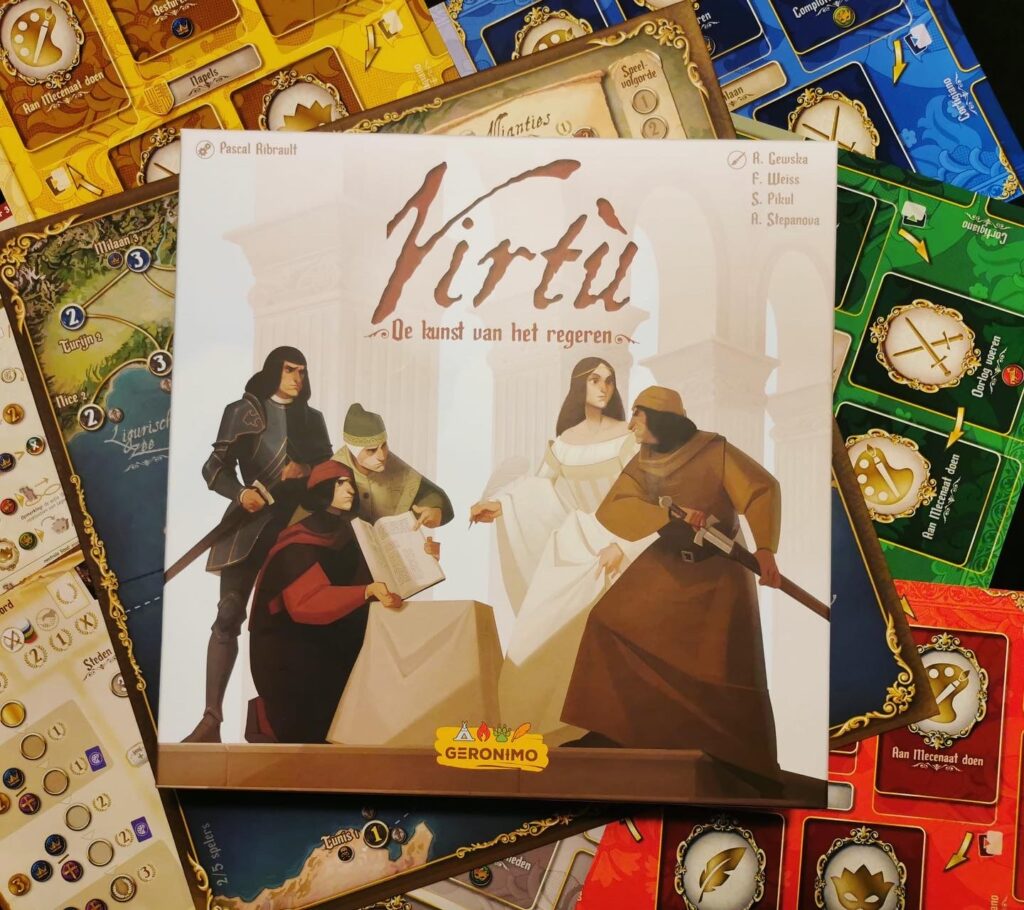It is the end of the 15th century in Italy. Italy is divided among a number of great powers: the Kingdom of Naples, the Republic of Venice, the Florentine Republic, the Duchy of Milan and, in the middle of Italy, the Papal States of Rome. The great families of these powers constantly challenge each other and vie for the high positions, pieces of land, power and, of course, wealth. But how do they manage it? How do they manage to pull the right strings to achieve power? This is what you learn in Virtù: the art of governing.

In Virtù, you take the role of one of the important factions of 15th century Italy. The game then revolves around a concept called ‘wheel building’. This means that each player has a personal board in front of him/her with a ‘wheel’ of actions on it that can be performed as the turns progress. What kind of actions are they, for example? These are skills that every 15th century ruler should have: waging war, plotting, governing and more. By performing these actions, you obtain better lands and developments, which in turn provide you with better resources and goods. With these resources and goods it is possible to hire armies, make alliances, thwart other players and many other things. The aim of the game is to collect as much prestige as possible before all the cities are conquered or someone is culturally developed.
The game has many different facets to progress and eventually win the game. It is quickly made clear what are better or worse tactics, which makes for diverse and interesting play. In addition, the game is beautifully designed and supports the players to immerse themselves in the 15th century. Virtù also offers players a special version of the game called ‘The Italian Wars’ which is especially made for two players. People who are fans of the game Orléans or fans of Catan who are just looking for a bit more of a challenge will enjoy Virtù.
The game has only a few minor drawbacks. The manual (Dutch version was reviewed) is sometimes a bit unclear and it is much complexer a read than the actual game is. Also, sometimes certain game situations are missing in the manual. The biggest minus is the lack of a glossary and/or symbol list that summarises what certain symbols or terms in the game mean in a clear diagram. This makes it difficult to find the meaning of a certain symbol or term.
All in all, Virtù is a game that is very well constructed and offers players many options for winning the game. What at first seems to be a difficult game plays smoothly after the first few rounds and manages to turn a noisy period in history into an intriguing game.








